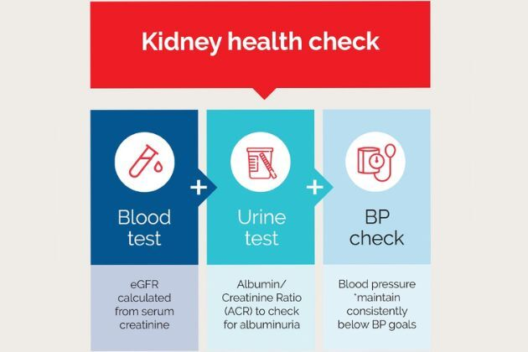If you have diabetes or high blood pressure, it’s wise to get a Kidney Health Check as soon as you can. You should repeat this check every year.
If you have any other risk factors (for example, you’re a smoker or have a history of kidney disease in your family), you should also get a Kidney Health Check but repeat the check every two years.
If you do not have any risk factors for kidney disease, there’s no need for you to undertake a Kidney Health Check – unless your doctor wants to conduct a test for other reasons.


